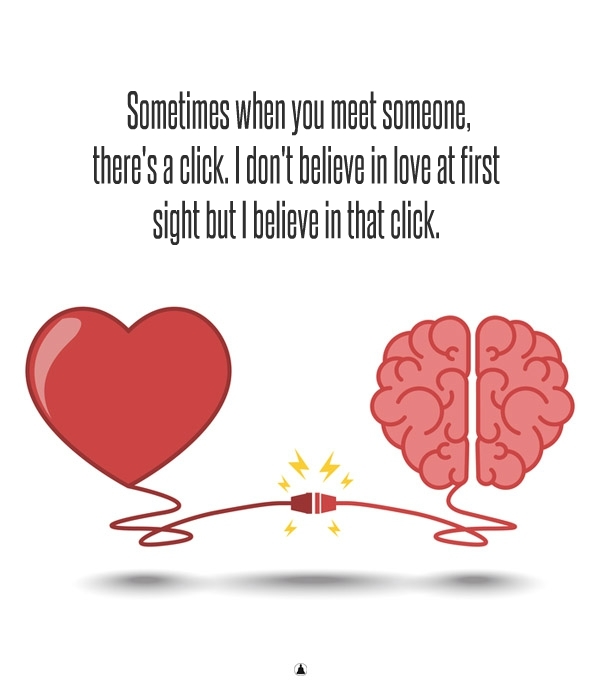My friend came to me the other day saying she met a guy and she immediately fell in love with him. She went for a coffee with him and he is all she’s ever wanted.
Okay, stop. We all know that what she is feeling is not love. Yes, it might turn into love later on, but it is not love yet.
Over the last two decades, neuroscientists have discovered the 4 stages that happen during the path of experiencing true love.
1. ATTRACTION
I guess all of you know this feeling. Your body becomes tense, your heart starts racing, and your palms start sweating like crazy. This instant response that you get from your body is what some call chemistry. This is what my friend was feeling.
However, sadly, this has nothing to do with love. This is all about physical attraction. Dilated pupils, racing heart, and sweating palms are all signs of your body releasing norepinephrine or also known as the fight-or-flight hormone. And this hormone makes you want to investigate more, so we get to the next phrase.
2. DATING
When you are in the process of dating, you are trying to find whether that person is the right one for you. Your brain subconsciously decides whether you fall in love with them or not. During this stage, your body releases oxytocin and dopamine for women, and testosterone, vasopressin, and testosterone for men.
Dopamine is a hormone that is released when someone gets excited about the potential of falling in love. Oxytocin is a hormone that makes women start trusting and it is released when she is being kissed, cuddled, or having intercourse.
When it comes to men, vasopressin is a hormone which is released when they cuddle, kiss, or think about getting sexual. And their testosterone levels go immediately up every time he feels like he has won his partner’s affection. This is a wonderful begin of the glorious feeling we call love.
3. FALLING IN LOVE
Neuroscientists have found that during the process of falling in love, all your hormones, especially the stress hormone called cortisol, go skyrockets. That’s why it is difficult for the majority of people to sleep or eat properly during this stage.
Moreover, your happiness hormone starts decreasing which seems counterintuitive since most people say they feel extremely happy and joyful. However, the main reason they feel happy is because of a part of the brain that is called amygdala, which is there to sound the alarm when your stress levels are very high, gets deactivated.
Therefore, even though you don’t feel so much happy, you don’t feel anxious or stressed because the indicator of that has gone on vacation. Furthermore, researchers also discovered that the ventromedial prefrontal cortex, which is the part of the brain that serves as a judge, also gets deactivated during this phrase. That’s why they say love is blind, right?
And of course, we all know that this stage is temporary because eventually your hormones will get in place and your brain will start functioning normally again. And when this happens, many couples break up, and those who stay together move into the next stage.
4. TRUE LOVE
This is the final stage of total love and stability. It happens after all the previous excitement has settled down and your brain has calmed down. Also, this is the point when you get your critical judgment back and that’s why many couples don’t survive this stage once the hormones wear off.
However, those couples who manage to stay together have one thing in common – they can stay positive and see the positive qualities of their partner. Or, in other words, they focus only on the good things in the relationship.
This is a stage when the love is mutual and grounded. It’s when both partners start trusting each other and have mutual love, compassion, and understanding for each other. This is unconditional love. That’s what we are all striving for.



